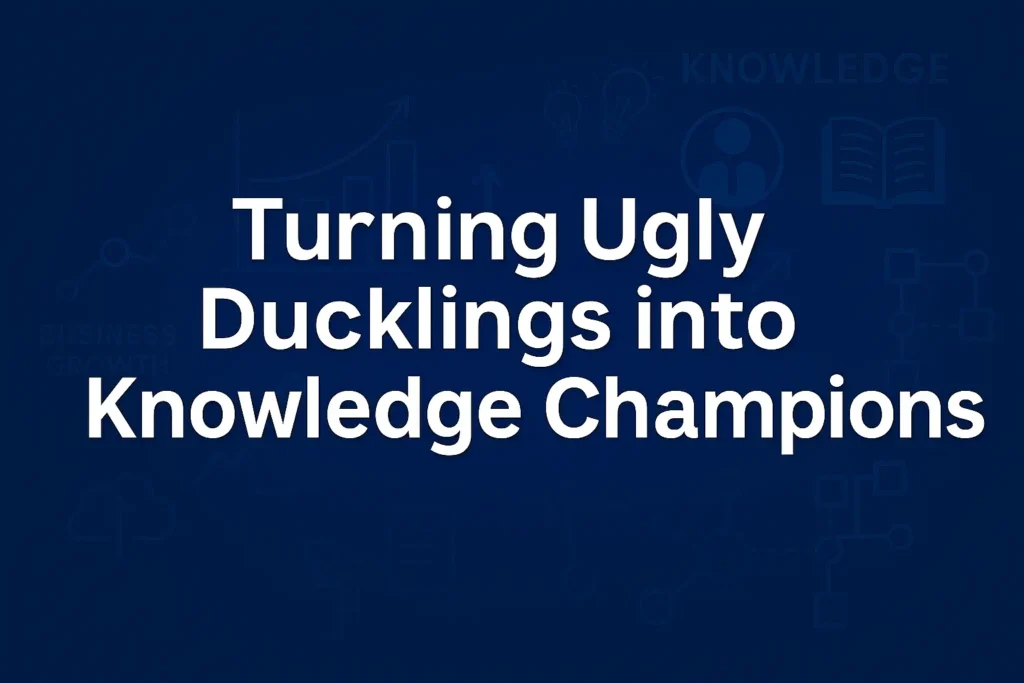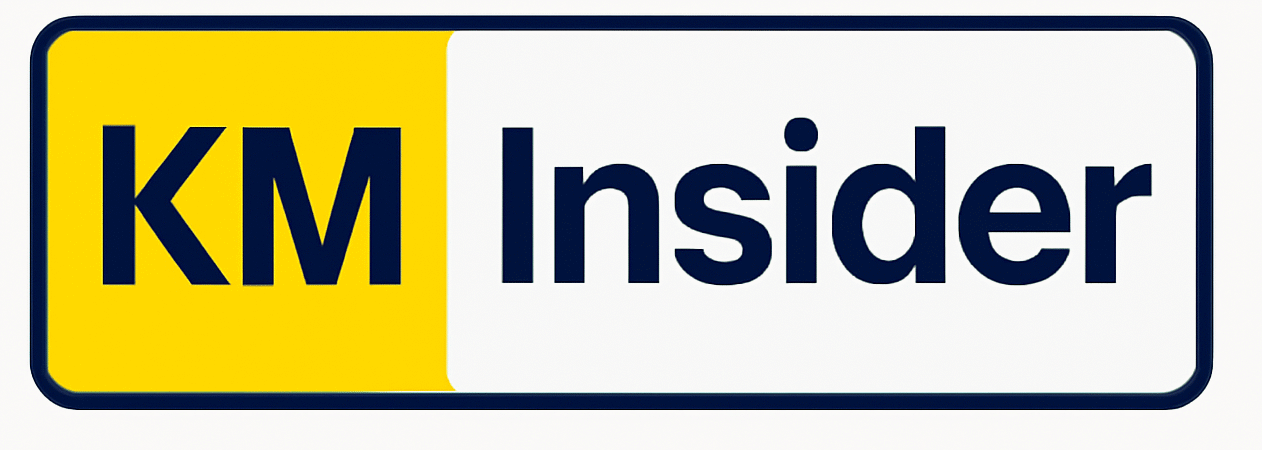In every organization striving to implement Knowledge Management (KM), one role stands above all others — the Knowledge Ambassadors. They are the living bridge between KM strategies and the daily realities of the workplace. Without their active presence, knowledge management initiatives remain short-lived projects that rarely reach the operational layers of the organization.
However, the success of a KM program does not begin with training these ambassadors it begins with choosing the right people. Selecting the right Knowledge Ambassadors is perhaps even more critical than designing KM processes or platforms. If you choose well, empowerment and training will naturally flourish. But if you choose poorly, no amount of workshops or systems can make up for it.

When Organizations Get It Wrong
Despite the availability of clear criteria for selecting KM representatives, many organizations fall into familiar traps. Based on several years of experience at Dana Knowledge Management Consulting Group, my colleagues and I have seen two recurring patterns:
- Appointing employees with very little experience
- Appointing employees with too much experience
Both decisions lead to similar outcomes — disappointment and lack of results.
Employees with little experience often lack a deep understanding of organizational processes and the key experts within them. On the other hand, highly experienced employees are usually too busy, too senior, or simply unmotivated to engage deeply in knowledge-sharing activities. In both cases, the organization ends up with nominal ambassadors who don’t deliver meaningful impact.
The “Parking Lot Experts”
Then there’s a third category — what we half-jokingly call “the parking lot experts.”
These are employees who, due to lack of skills or relevance in their department, have become underutilized. When KM initiatives begin, some managers see an opportunity — they assign these idle employees to the KM program, checking a box without real commitment. The result? Predictable failure. When the wrong people are chosen at the starting line, the race is lost before it even begins.
So, What’s the Solution? The answer isn’t complex but it does require insight. The best Knowledge Ambassadors are highly motivated individuals with a genuine desire to learn, connect, and make a difference. They might not always be the most senior or the most vocal, but they have a spark — a curiosity that, when nurtured, can light up the organization. The key is to identify and empower these people. And sometimes, they are hidden in plain sight.
The “Ugly Duckling” Metaphor
You may remember Hans Christian Andersen’s famous story “The Ugly Duckling.” A small bird, born among ducklings, is rejected for being different and “ugly.” Yet, as time passes, it grows into a beautiful swan — majestic, confident, and graceful.
In many ways, every organization has its own “ugly ducklings” — employees whose talents are overlooked, whose voices go unheard, and whose potential remains unseen. Given the right environment, these individuals can transform into the organization’s most valuable swans — confident, capable, and deeply committed Knowledge Ambassadors.
But unlike Andersen’s fairytale, this transformation doesn’t happen automatically. It requires intention, awareness, and the courage to see beyond appearances. The world is full of “swans” who never discovered their true potential — people who remained ducks simply because no one believed they could be more.
Finding and Growing Your Hidden Swans
To successfully implement KM, we must search for these organizational “ugly ducklings.”
It’s not easy, but it’s entirely possible. By combining talent management techniques with KM selection processes, organizations can identify individuals who have both the ability and the drive to grow.
Once selected, these individuals need two things: the opportunity to learn and a supportive environment to thrive. When these conditions are met, the transformation is remarkable.
A Real Experience
A few years ago, I was leading a KM implementation project at one of the major refineries. This time, I decided to approach the ambassador selection process with extra care.
First, I organized a briefing session for senior managers — those directly involved in the KM pilot. During that meeting, I emphasized one critical principle: “No parking lot experts allowed.” We needed motivated, capable people — not those being pushed aside.
Afterward, we gathered a list of potential candidates from various departments, roughly three times the number we needed. Then, we held an orientation session for them. During this session, I asked each participant to self-assess against specific criteria. If their self-rating fell below a certain threshold, I encouraged them to reconsider their participation.
This simple self-screening exercise worked wonders. It filtered out those who were uninterested or unfit for the role and revealed a group of truly passionate individuals. We then trained and empowered these candidates through structured programs, monitored their progress monthly, and recognized top performers quarterly.
Within six months, we had identified 15 highly capable Knowledge Ambassadors. They became trusted partners in implementing KM tools and practices throughout the organization.
Later, I heard from a colleague that the company’s Chief Knowledge Officer was genuinely surprised by some of the names on the list of top-performing ambassadors.
“These people?” he had asked. “I never thought they’d be successful in something like this!”
And yet, they were.
Those underestimated employees — once seen as ordinary or even “unsuitable” — had transformed into confident, active champions of knowledge. They were our “ugly ducklings,” now shining as beautiful swans.
Final Thoughts
The story of the ugly duckling isn’t just a children’s tale it’s a powerful lesson for leadership and talent development. Inside every organization, there are individuals waiting to be seen, trusted, and given a chance to grow.
If we want KM to thrive, we must look beyond titles, seniority, and appearances.
We must find the hidden potential — the overlooked, the underestimated — and give them a reason to believe in their own wings.
When we do, we don’t just create better Knowledge Ambassadors we create a culture of learning, growth, and transformation.
Read: Knowledge Champions Cup: Driving Engagement and Learning through Gamified Knowledge Management

